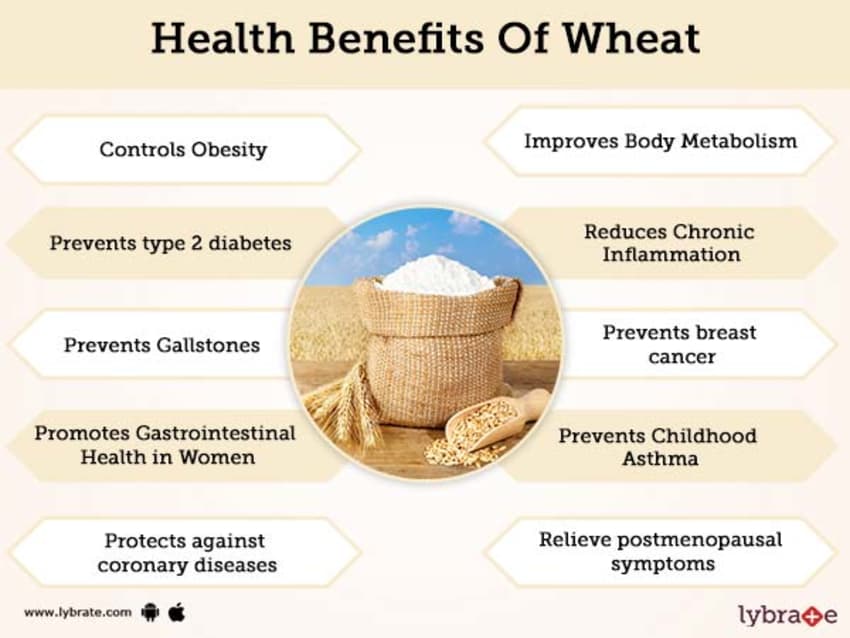Health Benefits Of Wheat Bran Flour
Health Benefits of Wheat Bran Flour
Wheat bran flour is a versatile ingredient that offers numerous health benefits. It is the outer layer of the wheat kernel and is rich in fiber, vitamins, minerals, and antioxidants. Incorporating wheat bran flour into your diet can improve digestion, support heart health, and aid in weight management. In this article, we will explore the various health benefits of wheat bran flour and how you can incorporate it into your daily meals.
1. Rich in Fiber for Digestive Health
One of the primary health benefits of wheat bran flour is its high fiber content. Fiber plays a crucial role in maintaining proper digestion and preventing constipation. Wheat bran flour is particularly rich in insoluble fiber, which adds bulk to the stool and helps it move through the digestive tract more easily. This can alleviate common digestive issues such as bloating, gas, and irregular bowel movements.

2. Supports Heart Health
Including wheat bran flour in your diet can have a positive impact on heart health. The fiber in wheat bran flour can help reduce cholesterol levels by binding to cholesterol in the gut and preventing its absorption into the bloodstream. Lower cholesterol levels can help reduce the risk of heart disease and stroke.
3. Aids in Weight Management
If you’re looking to maintain a healthy weight or shed a few pounds, incorporating wheat bran flour into your diet can be beneficial. The high fiber content in wheat bran flour can promote feelings of fullness and reduce appetite, leading to reduced calorie intake. Additionally, the fiber in wheat bran flour slows down digestion, keeping you satisfied for longer periods and preventing overeating.
4. Provides Essential Nutrients
Wheat bran flour is not only rich in fiber but also packed with essential nutrients. It contains significant amounts of vitamins and minerals such as vitamin B6, folate, magnesium, iron, and zinc. These nutrients are vital for various bodily functions, including energy production, red blood cell formation, and immune system support.
5. Offers Antioxidant Properties
Antioxidants are compounds that help protect the body from oxidative stress and damage caused by free radicals. Wheat bran flour contains antioxidants such as ferulic acid and phytic acid. These antioxidants can help reduce inflammation, protect against chronic diseases, and support overall health and wellness.
Now that we’ve explored the health benefits of wheat bran flour, let’s discuss how you can incorporate it into your daily meals. Wheat bran flour can be added to a variety of recipes, including baked goods, smoothies, yogurt, and breakfast cereals. Here are some delicious and nutritious ways to enjoy wheat bran flour:
Wheat Bran Muffins: Add wheat bran flour to your favorite muffin recipe for an added boost of fiber and nutrients. You can also mix it with whole wheat flour to create a healthier version of your favorite muffins.
Wheat Bran Pancakes: Swap a portion of the all-purpose flour with wheat bran flour in your pancake batter for a fiber-rich breakfast option. Top with fresh fruits and a drizzle of honey for added flavor.
Smoothies: Add a tablespoon or two of wheat bran flour to your morning smoothie for an extra fiber punch. It blends well with fruits, vegetables, and protein powder.
Oatmeal: Stir in some wheat bran flour into your morning oatmeal for added texture and fiber. Top with nuts, seeds, and berries for a wholesome and filling breakfast.
Incorporating wheat bran flour into your diet is a simple and effective way to boost your overall health and well-being. Experiment with different recipes and find the ones that suit your taste preferences. Enjoy the numerous health benefits that wheat bran flour has to offer.
Frequently Asked Questions
1: Is wheat bran flour gluten-free?
No, wheat bran flour is not gluten-free as it is derived from wheat, which contains gluten. If you have gluten sensitivities or celiac disease, it is important to choose gluten-free alternatives to wheat bran flour.
2: Can wheat bran flour help with weight loss?
Yes, wheat bran flour can aid in weight loss due to its high fiber content. The fiber keeps you feeling full for longer periods, reducing the chance of overeating and aiding in weight management.
3: How much wheat bran flour should I consume daily?
The recommended daily intake of fiber for adults is around 25-35 grams. It is advisable to gradually increase your intake of wheat bran flour and other fiber-rich foods to avoid digestive discomfort. Start with small amounts and gradually increase as your body adjusts.
4: Are there any potential side effects of consuming wheat bran flour?
While wheat bran flour is generally safe for consumption, some individuals may experience digestive issues such as bloating, gas, or stomach discomfort. It is important to drink plenty of water when consuming wheat bran flour to avoid constipation.
Final Thoughts
Incorporating wheat bran flour into your diet can bring numerous health benefits. From improved digestion to heart health and weight management, the high fiber content and essential nutrients make it a valuable addition to any meal. Experiment with different recipes and enjoy the nourishing and delicious benefits of wheat bran flour. Remember to consult with a healthcare professional before making any significant dietary changes, especially if you have any underlying health conditions.







